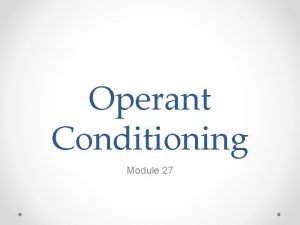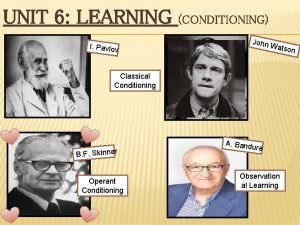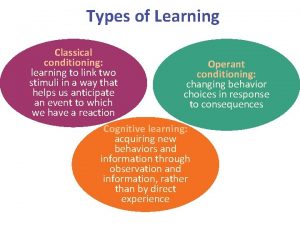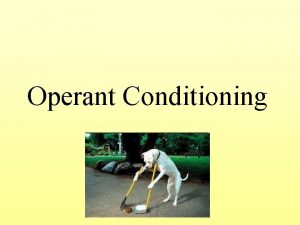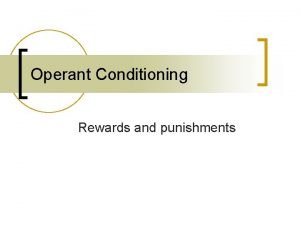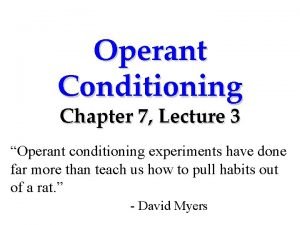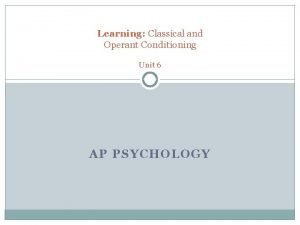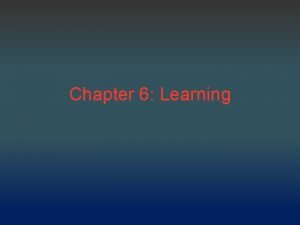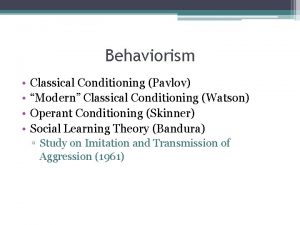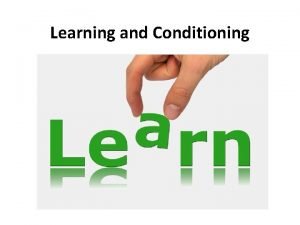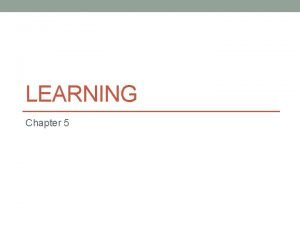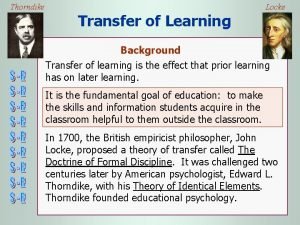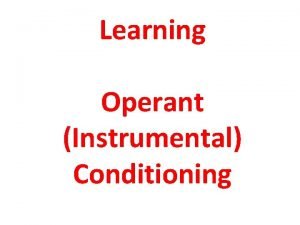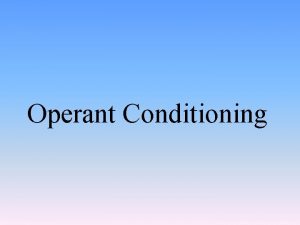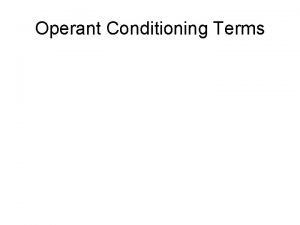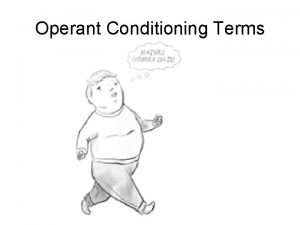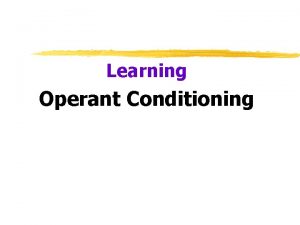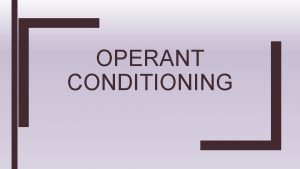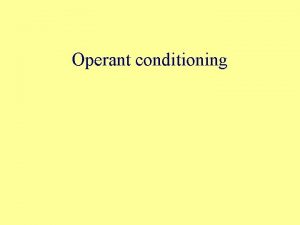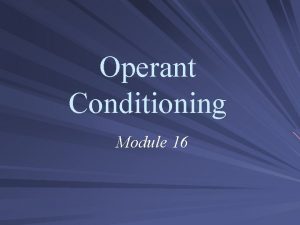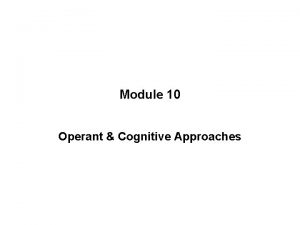Operant Conditioning Terms Edward Thorndike Law of Effect














- Slides: 14

Operant Conditioning Terms

Edward Thorndike • Law of Effect: behavior followed by favorable consequences becomes more likely; behaviors followed by unfavorable consequences become less likely (basis of Operant Conditioning)

Cat Puzzle

Skinner Box – a chamber containing a bar that an animal can manipulate to obtain a food or water reinforcer; devices are attached to record the animal’s rate of bar pressing • Skinner Box Video

Operant Conditioning Chamber Conditioning

Shaping • an operant conditioning procedure in which reinforcers guide behavior toward closer and closer approximations of a desired goal “Good job” when they get on all fours SHAPING DEMO Give them a candy when they start crawling toward you Hug and a kiss when they stand up

Types of Reinforcers

Primary Reinforcer • An innately reinforcing stimulus, such as one that satisfies a biological need

CONDITIONED (SECONDARY) Reinforcer • a stimulus that gains its reinforcing power through its association with a primary reinforcer

Cognitive Map • A mental representation of the layout of one’s environment

Latent Learning • learning that occurs but is not apparent until there is an incentive to demonstrate it


Overjustification Effect • the effect of promising a reward for doing what one already likes to do

Cognition and Biology • Cognitive Processes of Operant Conditioning • Cognitive processes are also at work in operant learning – Animals on a fixed-interval reinforcement schedule respond more frequently as the time gets closer to the reinforcer (EXPECTATIONS) • Biological Predispositions of Operant Conditioning • It is easier to reinforce behaviors normally associated with their natural behaviors – Example – can use a food reinforcer to get a hamster to rear up, more difficult to use a food reinforcer to get a hamster to wash its face
 Thorndike operant conditioning
Thorndike operant conditioning Thorndike operant conditioning
Thorndike operant conditioning Classical and operant conditioning differences
Classical and operant conditioning differences Little albert experiment
Little albert experiment Partial schedule of reinforcement
Partial schedule of reinforcement Operant vs. classical conditioning
Operant vs. classical conditioning Operant vs classical
Operant vs classical Operant conditioning
Operant conditioning Fixed-ratio schedule example
Fixed-ratio schedule example Classical and operant conditioning.
Classical and operant conditioning. Classical conditioning vs operant conditioning
Classical conditioning vs operant conditioning Operant conditioning classical conditioning
Operant conditioning classical conditioning Law of effect thorndike
Law of effect thorndike Classical conditioning cs us ur cr
Classical conditioning cs us ur cr Thorndike's theory of learning
Thorndike's theory of learning
